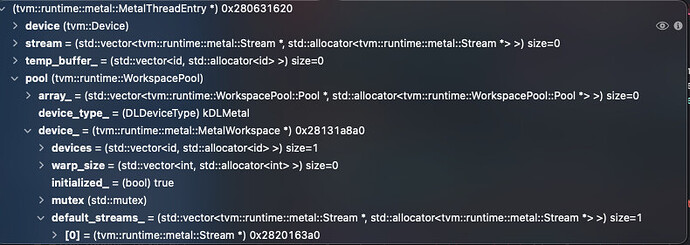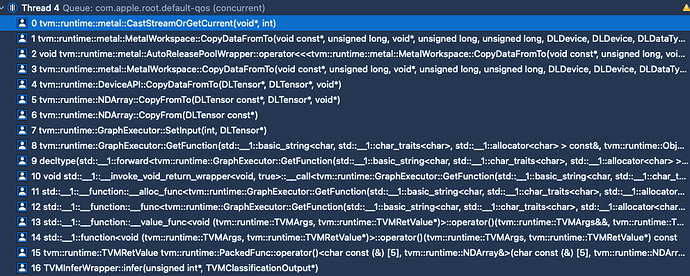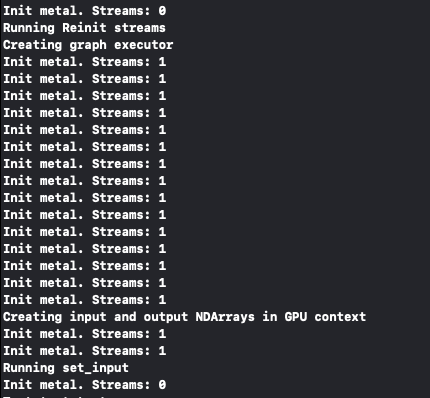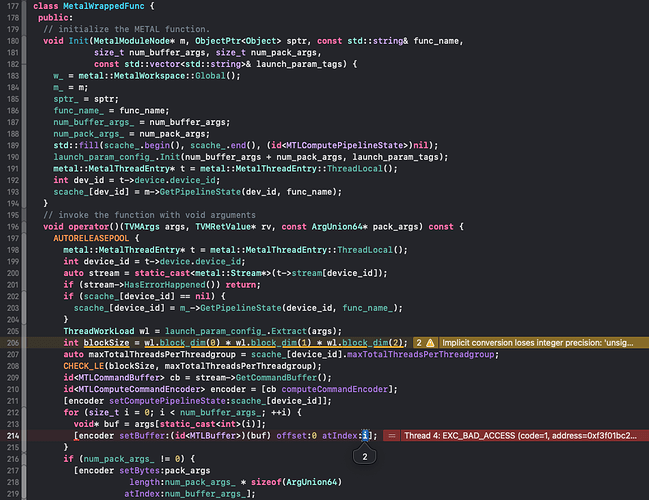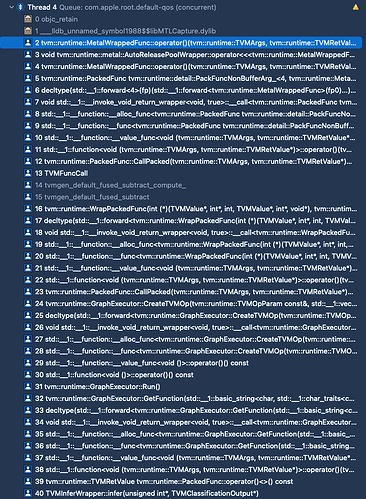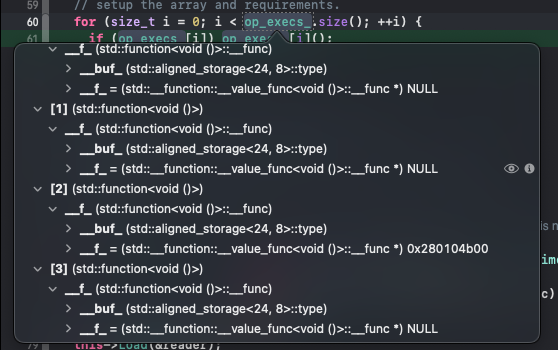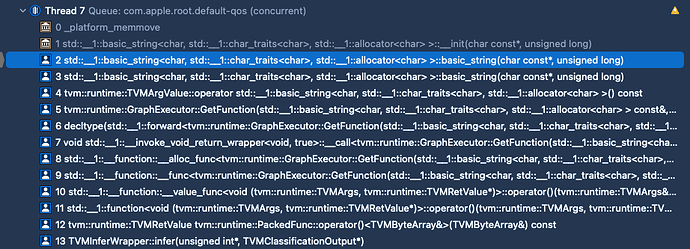Hello again,
I am trying to create a simple proof of concept of loading a model, running it, and retrieving the results using metal on an iOS device, in this case an ipad 6th gen with iOS 15.1, model number MR7D2LL/A. This is being compiled and run on the iPad using Xcode 13.1.
It seems to run well, loading the compiled model and creating the graph executor on the metal device, until a copy or sync operation calls the CastStreamOrGetCurrent function in the metal_device_api.mm file. When this function is called, the program crashes with a exec_bad_access error.
MetalThreadEntry::ThreadLocal() call, it is apparent that the stream array is empty.
Here is how I am compiling the model in python (inspired by the ios_rpc apps example):
from tvm.contrib import xcode
shape_dict = {"data": (1, 3, 512, 512)}
arch = "arm64"
sdk = "iphoneos"
@tvm.register_func("tvm_callback_metal_compile")
def compile_metal(src):
return xcode.compile_metal(src, sdk=sdk)
model = onnx.load(model_file_path);
builder = xcode.create_dylib
mod, params = relay.frontend.from_onnx(model, shape_dict)
with tvm.transform.PassContext(opt_level=0):
target = tvm.target.Target(target="metal", host="llvm -mtriple=%-apple-ios -link-params" % arch)
compiled = relay.build(mod, target=target, params=params)
file = open("./mod_metal.json", "w")
file.write(compiled.get_executor_config())
file.close()
compiled.get_lib().export_library(compiled_model,fcompile=builder, arch=arch, sdk=sdk)
And here is the stripped down C++ that I am currently using to execute the model on metal (type declarations are elsewhere):
std::ifstream model_json_in("mod_metal.json", std::ios::in);
std::string json_data{(std::istreambuf_iterator<char>(model_json_in)),std::istreambuf_iterator<char>()};
model_json_in.close();
model_json = json_data;
ctx = {kDLMetal, 0};
mod_syslib = tvm::runtime::Module::LoadFromFile("mod_metal.dylib");
mod_factory = (*tvm::runtime::Registry::Get("tvm.graph_executor.create"));
executor = mod_factory(json_data, mod_syslib, (int64_t)ctx.device_type, (int64_t)ctx.device_id);
set_input = executor.GetFunction("set_input");
get_output = executor.GetFunction("get_output");
run = executor.GetFunction("run");
x = tvm::runtime::NDArray::Empty({1, 3, 512, 512}, DLDataType{kDLFloat, 32, 1}, ctx);
y = tvm::runtime::NDArray::Empty({1, 26, 15, 4096}, DLDataType{kDLFloat, 32, 1}, ctx);
// Load data previously placed in tmpBuffer into x
TVMArrayCopyFromBytes((TVMArrayHandle)&x, reinterpret_cast<void *>(tmpBuffer), (size_t)(m_channels * m_width * m_height * sizeof(float)));
set_input("data", x); // Crashes here, in this case, when the CastStreamOrGetCurrent gets invoked
run();
get_output(0, y);
Here is the stack trace upon crashing:
When I try copying the data into the gpu using this method, it crashes on this line, also when the CastStreamOrGetCurrent function is invoked
x.CopyFromBytes(reinterpret_cast<void *>(tmpBuffer), (size_t)(m_channels * m_width * m_height * sizeof(float)));
And when I try running a manual sync, passing in nullptr for the stream, it also crashes when that function is called.
TVMSynchronize(ctx.device_type, ctx.device_id, nullptr);
Does anyone have any hints as to where things may be going wrong? I’m not certain how the stream array is supposed to get populated, or what may be interfering with it.

